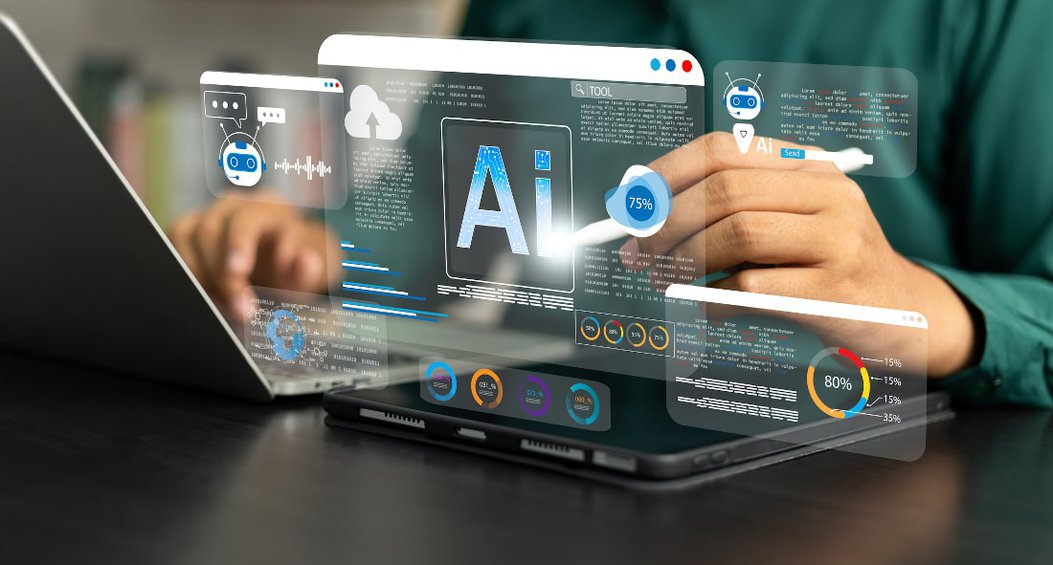
Artificial Intelligence and How It Helps in The Accounting Field
In the current day and age artificial intelligence has now been incorporated into almost every aspect of our lives, whether personally or professionally. In the field of accounting AI has introduced new possibilities for cost reduction, improved accuracy and minimized human error, and increased our accuracy and efficiency.
Cost Reduction
AI can help reduce operational costs that are commonly affiliated with accounting tasks. By computerizing repetitive responsibilities, a business can reduce time spent on manual labour while improving the efficiency of the accounting process. By using AI to perform basic tasks like data reconciliation and invoice entry AI decreases the need for people to perform these tasks. In turn, this enables accountants to concentrate on more high-value and complicated tasks which is a better usage of human resources and reduces staffing costs.
Improved Accuracy and Reduced Human Error
AI is able to improve the accuracy of accounting processes by negating the possibility of human errors in activities like compilation checks and calculations. AI can support assignments in audits using AI-powered audit tools which can scan financial reports to look for inconsistencies ensuring a high level of precision in audits. AI is also known to check that tax calculations like credits and deductions are correctly applied and up to date with current tax codes. Several platforms have been known to use artificial intelligence to reduce errors in tax assessments, minimizing the risk of penalties.
Increase Efficiency
AI drastically boost the speed of how automated time-consuming repetitive tasks are done. These might include things like invoice processing, error checking, and data entry, all of which usually require significant human effort.
In regard to invoice processing, AI ensures financial records are up to date by capturing and categorizing invoice details and also ensures that recurring bills are paid on time. With an automated system, it allows business to track their flow of money more efficiently while also having greater accuracy. AI can also benefit error checking and data entry as there are tools such as Expensify and Dext to automatically select relevant data from receipts, financial documents and invoices, removing the need for manual entries, which would significantly reduce human intervention, thereby reducing human error.
Enhanced Data Analysis
In addition, to increasing efficiency, AI technology can also process and analyze large amounts of data faster and more accurately than people. This technology can not only speed up data analysis but also enhance its quality and depth for things like real time insight and predictive analytics.
For real-time insights with the incorporation of AI, companies do not have to wait for their annual financial reports but can check their business's financial health in real-time. By quickly analyzing transactions, revenues and expenses artificial intelligence can help accountants and financial analysts identify trends, patterns and discrepancies as they happen.
AI can also enhance the speed of creating predictive analytics by analyzing the historical data of a business and produce predictive models to forecast likely future financial trends. AI tools are currently being used to find patterns in financial data to predict future sales trends, cash flows and potential risks. This allows businesses to take an active role in decision-making rather than just reacting to results.
AI in Fraud Detection
Besides automating basic tasks AI can also help accountants by detecting and preventing fraud. This can help businesses protect their financial integrity by finding patterns, potentially fraudulent activities and anomalies.
Like with providing continuous financial data, AI can also monitor accounting records and transactions to mark suspicious activities as they occur in real-time. This strategy allows for timely detection and prevents fraudulent activities from escalating.
Furthermore, artificial intelligence can track employee activities to detect conflicts of interest or unauthorized access. AI can mark suspicious relationships or communication between external vendors and employees as well as flag unusual access to sensitive information or access to financial information systems.
Personalized Financial Services
AI can personalize financial services by allowing accountants to provide tailor solutions to meet the specific circumstances and needs of different businesses and individuals. By maximizing the use of data analytics, artificial intelligence can improve the relevance, efficiency and precision of financial guidance accountants provide specifically in areas like client advisory services or tax.
By analyzing datasets and generating insights accountants can help lead clients to make informed decisions regarding risk management, growth and investments. AI can provide business plans that align specifically with a firm’s unequal goals, competitive landscape and industry dynamics. AI tools can also analyze financial data to produce reports of projections of cash flows allowing businesses to plan for capital investments, debt management or expansion plans.
AI tools can also help with compliance of tax laws as well as finding opportunities for saving. This can be in regards to international tax compliance, identifying applicable tax credits and deductions, proactive tax planning and etc.
Contact us to find out how our firm’s tech-stack, AI initiatives, and expert staff can help your business become more efficient, reduce errors, and mitigate risk in these uncertain times.
References
Lazanis, R. (2024, July 24). AI in Accounting: A Guide written by Artificial Intelligence. Future Firm. https://futurefirm.co/ai-in-accounting/
Marks, G. (2024, January 1). The (very) emerging role of AI in the Accounting Industry. Forbes. https://www.forbes.com/sites/quickerbettertech/2024/01/01/the-very-emerging-role-of-ai-in-the-accounting-industry/
Oliver, B. (2023, November 15). How artificial intelligence can help save accounting. Journal of Accountancy. https://www.journalofaccountancy.com/news/2023/nov/how-artificial-intelligence-can-help-save-accounting.html
Sahota, N. (2024, April 22). The dawn of a new era: AI’s revolutionary role in accounting. Forbes. https://www.forbes.com/sites/neilsahota/2024/04/22/the-dawn-of-a-new-era-ais-revolutionary-role-in-accounting/